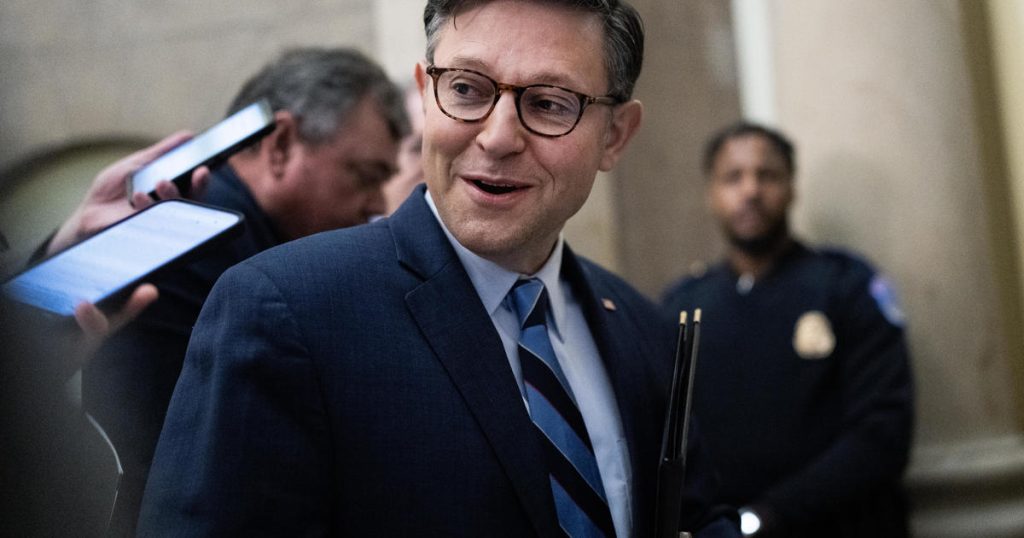House Speaker Mike Johnson announced that the House would vote on a six-month continuing resolution to keep the government funded on Wednesday, despite opposition from Democrats and some within the Republican party. Last week, GOP leaders pulled the vote after facing resistance from their own members, but Johnson emphasized the importance of funding the government and securing elections. The vote was delayed to this week to build support within the party.
The government has until the end of the month to be funded, necessitating a short-term measure to avoid a shutdown. The plan put forth by House Republican leadership includes the continuing resolution to fund the government through March 28, along with a voting legislation called the SAVE Act. This act would require proof of citizenship to register to vote in federal elections and is aimed at targeting illegal voting, which is rare. Democrats generally see this legislation as a nonstarter.
Senate Majority Leader Chuck Schumer called on Johnson to drop his plan, stating that bipartisan cooperation is needed to prevent a government shutdown. Schumer emphasized that a bipartisan agreement is the only way to avoid harmful consequences. Democrats in the Senate have made it clear that the plan is unlikely to pass in the upper chamber, and its fate in the House is uncertain. While the voting measure may appeal to some House conservatives, there is opposition within the Republican conference.
Despite concerns about the bill’s passage, Johnson remains committed to getting it through the House. He stated that he is not considering alternative options and will work tirelessly to secure its approval. Some Republicans, like Rep. Thomas Massie, have expressed opposition to the plan, calling it a diversion from addressing spending issues. Johnson acknowledged the challenges but is determined to push the bill forward.
The addition of the voting legislation to the funding resolution has sparked controversy and created divisions within the Republican party. Johnson’s decision to include this measure in the bill reflects his stance on securing elections, but it has faced backlash from some members of his own party. The vote on the continuing resolution and accompanying legislation will likely be a contentious issue in the coming days as lawmakers work to avoid a government shutdown. Johnson’s determination to move forward with the vote indicates his commitment to address key issues facing the government.


